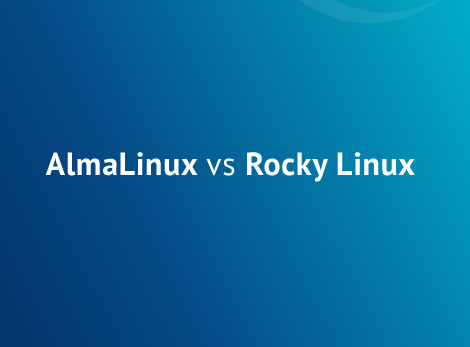Rocky Linux vs. AlmaLinux: Which One to Choose?

AlmaLinux and Rocky Linux are two free and open-source operating systems based on the Red Hat Enterprise Linux (RHEL) distribution. Both are designed to be community-driven, transparent, and stable, but there are some key differences between the two.
Rocky Linux
Rocky Linux is a free and open-source operating system based on the Red Hat Enterprise Linux (RHEL) distribution. It was created as an alternative to RHEL and aims to be a community-driven, transparent, and stable operating system.
Some key features of Rocky Linux include:
- Compatibility with RHEL: Rocky Linux is based on RHEL and is designed to be binary compatible with it, meaning that applications compiled for RHEL should work on Rocky Linux without any modifications.
- Community-driven development: Rocky Linux is developed by a community of volunteers who contribute to the project through code, documentation, and testing.
- Transparent development process: Rocky Linux aims to be transparent in its development process, with all discussions and decisions made in public forums.
- Stable release cycle: Rocky Linux follows a stable release cycle, with new releases coming out every 6-12 months.
- Package management: Rocky Linux uses the RPM package manager and the yum package manager to manage software packages. It also includes the DNF package manager as an alternative to yum.
- Supported architectures: Rocky Linux is available for the x86-64 and armhfp architectures.
AlmaLinux
AlmaLinux is a free and open-source operating system based on the Red Hat Enterprise Linux (RHEL) distribution. It was created as an alternative to RHEL and aims to be a community-driven, transparent, and stable operating system.
Some key features of AlmaLinux include:
- Compatibility with RHEL: AlmaLinux is based on RHEL and is designed to be binary compatible with it, meaning that applications compiled for RHEL should work on AlmaLinux without any modifications.
- Community-driven development: AlmaLinux is developed by a community of volunteers who contribute to the project through code, documentation, and testing.
- Transparent development process: AlmaLinux aims to be transparent in its development process, with all discussions and decisions made in public forums.
- Stable release cycle: AlmaLinux follows a stable release cycle, with new releases coming out every 6-12 months.
- Package management: AlmaLinux uses the RPM package manager and the yum package manager to manage software packages. It also includes the DNF package manager as an alternative to yum.
-
Supported architectures: AlmaLinux is available for the x86-64 and armhfp architectures.
Rocky Linux vs AlmaLinux: A Comparison

Here’s a comparison of AlmaLinux and Rocky Linux:
| Feature | AlmaLinux | Rocky Linux |
|---|---|---|
| Based on RHEL | Yes | Yes |
| Binary compatibility with RHEL | Yes | Yes |
| Community-driven development | Yes | Yes |
| Transparent development process | Yes | Yes |
| Stable release cycle | Yes (every 6-12 months) | Yes (every 6-12 months) |
| Initial release date | April 2021 | January 2021 |
| Package management | RPM, yum, DNF | RPM, yum |
| Supported architectures | x86-64, armhfp | x86-64 |
One key difference between AlmaLinux and Rocky Linux is the initial release date. AlmaLinux was released in April 2021, while Rocky Linux was released in January 2021.
Another difference is the package management systems used. Both AlmaLinux and Rocky Linux use the RPM package manager and the yum package manager, but AlmaLinux also includes the DNF package manager as an alternative to yum.
A third difference is the supported architectures. Both AlmaLinux and Rocky Linux are available for the x86-64 architecture, but AlmaLinux is also available for the armhfp architecture.
Finally, while AlmaLinux and Rocky Linux are both free and open-source operating systems based on RHEL that aim to be community-driven, transparent, and stable, they have some key differences in terms of the initial release date, package management systems, and supported architectures. Ultimately, which one you choose will depend on your specific needs and preferences.
